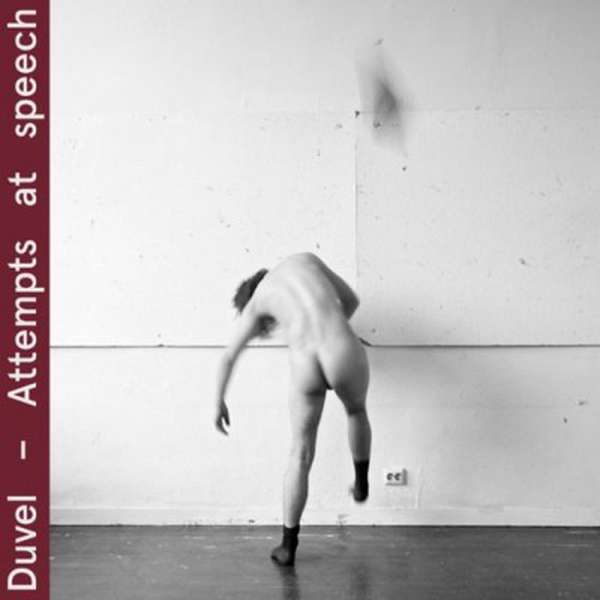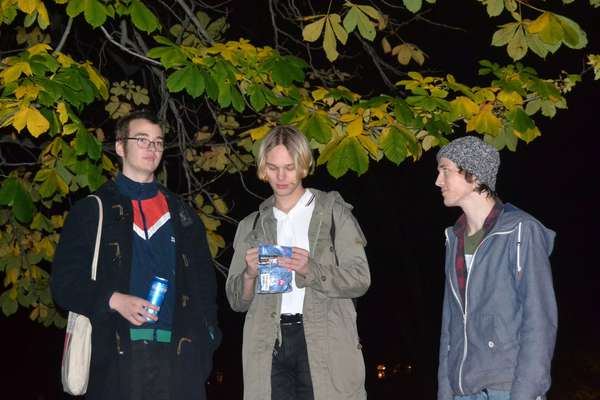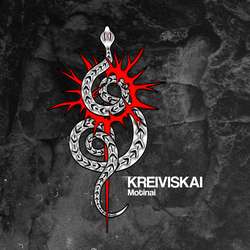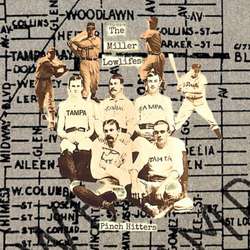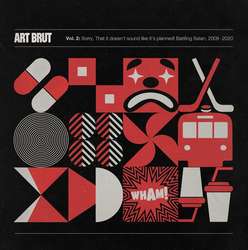Welcome to Duvel’s childlike fantasy, their ruminations inspired by Norwegian life. The bleak echoing of whatever neurosis such a wonderfully Scandinavian culture produces, other than seasonal depression and too much equality, speaks through them in musical duality. This album is so childlike, oftentimes aloof, stumbling upon pure goodness as if by accident. They are Parsifal, before he got his name, stumbling upon the castle guarding the Holy Grail: a holy fool shooting the holy swan with his bow and arrow, unaware of what ground he’s trampling over. Just like Parsifal discovered the Holy Grail by following the knights and their shiny armor, Duvel got here by emulating their heroes, no doubt Joy Division being among them. What is their bow, their weapon of choice? The musical talent they’ve honed, at times awkward, and at times sublimely simple. When Parsifal kills the swan with his bow, he misses the mark (Greek and Hebrew definitions of sin are akin to missing the mark in spear throwing, or missing the gold in the center of the target but hitting the target itself). When Attempts at Speech misses the mark when it sounds derivative, and awkwardly simplistic. But the scene that Parsifal stumbles upon reveals the old king, mortally wounded by the Holy Spear, and the pure fool, enlightened by compassion, is the only one to heal him. In comparison, Duvel has inherited the responsibility to rescue and justify their ancestors, and to reinvent the wheel, so to speak. No easy task for a newborn, especially because they seem unaware of their divine mission.
Sonically speaking, the bass occupies the lower instincts of the child, carved out of the bands most obvious influences, as their driving force, the weight with which its oversized head tumbles through the landscape. The drums are the gangly awkward limbs stiffly navigating between the concrete world of instincts, and the wispy fantasy of reverberated guitars crispy layering the child’s imagination. Even though one song falls into the next in quaint aloofness, and the production quality is stripped down, raw and minimalistic (no doubt working in their favor), Attempts at Speech wanders the world with a newborn perspective, a sound that is equal in Pathos and impassioned earthiness, unaware of its own direction.
Another way of looking at it is, like a child’s developing consciousness, Duvel inherits a set of sonic possibilities, a kind of language, and in an island-like awareness they navigate inside the unconscious childlike fantasy with intimations of a calculated adult. For example, the drumbeats sound both awkward and give the impression of potential sophistication in future releases, inspiring hope for development, giving the album a definite tilt toward the future. Two such objects of hope are the songs “Sacred Place”, and “Birds”, which nicely crack open the door to a transcendental sound, the place where “time becomes space”, a feature the rest of the album lacks to some degree.
The album works in other island-like ways. It sails between warmly familiar songs like the two mentioned, and a formless anxiety of chaotic reverberations. The bass occupies the mature stability of the music, allowing the guitars to echo its naïve otherworldliness in a duality of musical juxtaposition. Moreover, their solid bass-drum combo, pushing and pulling the listener like ocean currents, ties us together, like a ship floating dangerous waters.
Attempts at Speech, although a valiant freshman release, is not ahead of its time. I’ll put it this way: if their record came out in 1978 it would be groundbreaking. Unfortunately for Duvel, music has evolved in the past 30 odd years, making their first attempt banally right on time, and right in line with its development--no doubt set by the standards of its predecessors.
Back to Parsifal. When the knights of the Holy Grail inform him of his sin, he becomes wrought with shame, remorsefully breaks his bow, and casts it aside. Upon viewing the Holy Grail, the holy fool is unable to come up with words to interpret what he saw. Disarmed, he forfeited any right to the divine. True to his nature, he later stumbles into the garden of earthly delights. Pixies, nymphs, and other more ominous creatures fight to seduce the fool. Out comes a powerful witch, a terribly beautiful succubus who tells him his true name. The same one who mislead the king, is the one who reveals the way to divine wisdom, connecting Parsifal with his past. After resisting the witches advances, she summons the evil king who throws the Holy Spear (the same one that pierced the side of Christ) at Parsifal. Miraculously the spear stops in front of his head, and Parsifal claims it as his own. As he leaves, the garden crumbles into dust. Parsifal wanders for years, sometimes fighting, but never using the spear, searching for the Holy Grail he so effortlessly stumbled upon. Upon rediscovering it, he is clad with armor, and hardened by his efforts. Lying in the bushes is the witch, desiccated and submitted now to Parsifal’s purposefulness.
Ultimately, Duvel seems seduced by the pixie of imitation. But just because they sinned in this respect, doesn’t mean they can’t, or shouldn’t redeem themselves. Parsifal’s story ends by touching the Holy Spear to the wounded kings side, healing him, and redeeming the king to his rightful place, and lifting the curse placed on the witch. For Duvel, the deliberate use of their shortcomings may hold the key to perfecting their next release, or at least let them hit closer to the mark.
See also
Duvel: https://www.facebook.com/Duvel-band-372111833184466/
Fysisk Format: http://www.fysiskformat.no/wp_ff/
